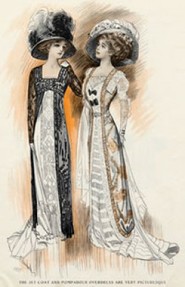 Edward was already 59 years old when he became King of the United Kingdom and the British Dominions and Emperor of India. Nine years later, he was dead.
Edward was already 59 years old when he became King of the United Kingdom and the British Dominions and Emperor of India. Nine years later, he was dead.
That should have been the end of the Edwardian times. After all, it was named after him (unless you're American, in which case the Gilded Age is often used instead, while the French prefer La Belle Époque (The Beautiful Era)).
If we're going with the end of Edward, then this period stops in 1910.
No-one ever does that.
History, once the gears have been set in motion, is slow to grind down. This was particularly true when the King was so popular in his lifetime. It also makes sense to continue the period until a certain line can be drawn under it.
Four years after the death of King Edward VII, one of the most major events of recent history began. This was the First World War, which erupted out of the political manoeuvrings of the Edwardian Age. For some that era ended with this - the Great War of 1914.
But there's a kind of morality tale in letting the hubris and arrogance of the Edwardians result in wholesale destruction. They caused it, so they should remain associated with it. For historians who take this view, then the period is put to rest in 1919 with the signing of the Treaty of Versailles.
The end of war and the end of the Edwardians.
So what is after the Edwardian era? It's either a kind of limbo half decade of the new Georgians. That's too messy. It sounds too much like the Georgian period over a century before. Or it's the First World War.
For the majority of people, what followed the Edwardian era is none of those. It's the 1920s and the Inter-War Period. It's Austerity or, if you're looking at the positive attempts at kicking-starting the fun and games again, it's the Roaring Twenties.
Asking what dates are Edwardian is problematic though. It's 1901-1910; 1901-1914; or 1901-1919. Take your pick. We can make a case for them all.








 Edward was already 59 years old when he became King of the United Kingdom and the British Dominions and Emperor of India. Nine years later, he was dead.
Edward was already 59 years old when he became King of the United Kingdom and the British Dominions and Emperor of India. Nine years later, he was dead.


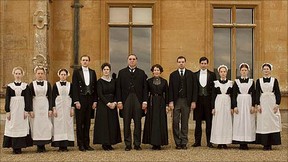 The first fourteen years of the 20th century have been described as 'a long, sunlit afternoon'. Remembered from the other side of two world wars, Austerity, The Great Depression and the grim Post-War Period, nostalgia placed rose-tinted glasses onto the most down-to-earth of people.
The first fourteen years of the 20th century have been described as 'a long, sunlit afternoon'. Remembered from the other side of two world wars, Austerity, The Great Depression and the grim Post-War Period, nostalgia placed rose-tinted glasses onto the most down-to-earth of people.


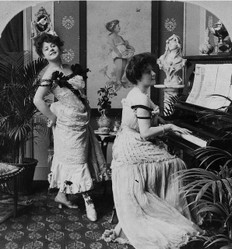

 St Tydecho's Churches in West Waleson 09/03/2014
St Tydecho's Churches in West Waleson 09/03/2014
 Goodies for an Outlander Premiere Partyon 03/06/2015
Goodies for an Outlander Premiere Partyon 03/06/2015
 Holocaust Memorial Day Interview with Rainer Höss, Grandson of Rudolf Architect of Auschwitzon 01/24/2015
Holocaust Memorial Day Interview with Rainer Höss, Grandson of Rudolf Architect of Auschwitzon 01/24/2015
 Romantic Valentine Gifts for an Outlander Fanon 01/16/2015
Romantic Valentine Gifts for an Outlander Fanon 01/16/2015

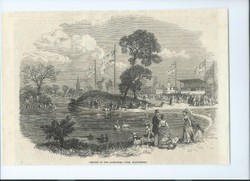
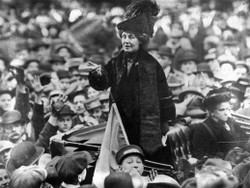
Comments
I'm glad to hear that you think so, thank you very much. :)
You have really brought the Edwardian Era to life in this page!
Awww, bless you. <3
Then I shall research her and hope to do you both proud. And if you want to write about the show in the meantime, I'll link it up too.
@JoHarrington aw shucks. You can do it. I like your writing :)
I've briefly checked it out. It looks very entertaining. I'll have to watch the series.
Unfortunately, it's only based on the Edwardian period, rather than being actually in it. Mind you, one of us could write an article on Rosa Lewis. Are you up for it?
@JoHarrington Definitely! It's based on a true story. The main character, Louisa, was rumored to be Edward's mistress, and he makes an appearance in the series. Makes me want to write a wiz on Poldark, my other historical favorite.
I've vaguely heard of that one. Please refresh my memory! Is it big enough to go into my list of Edwardian events?
One my my favorite Masterpiece Theater shows comes from this period - The Duchess of Duke Street. Thanks for reminding me of it.
WendyFinn - Thank you very much. :D That's a good debate. Living upstairs means dying of boredom. Living downstairs means working yourself into utter exhaustion, with every minute of your day accounted for. It's a tough call and I don't think I'd have liked either!
Thanks for your comment. :)
2uesday - A very tough time for those who weren't rich, which is why this is the era of all those movements aimed at social mobility and equality. We were still a long way off either coming true, but things really sped up in Edwardian times.
So many of that generation really did live in fear of the workhouse, with good reason. My Nan was born in 1915, so she was a late Edwardian baby (if we're taking this until 1919). As late as 1997, when she died, she was terrified of our local hospital. Back in the day, it had been the workhouse. The purpose of it just shifted with National Health.
Thank you for your comment.